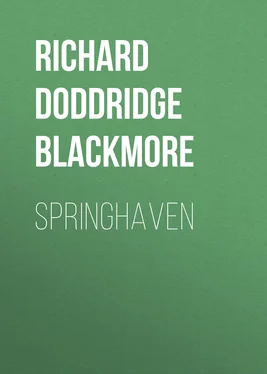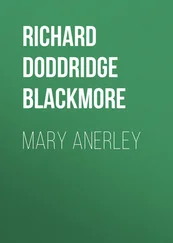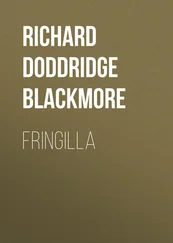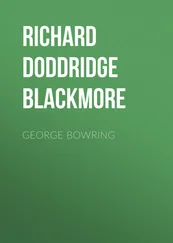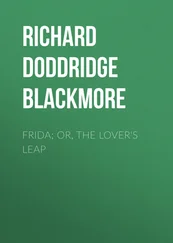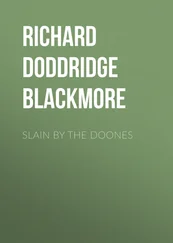Richard Doddridge Blackmore - Springhaven
Здесь есть возможность читать онлайн «Richard Doddridge Blackmore - Springhaven» — ознакомительный отрывок электронной книги совершенно бесплатно, а после прочтения отрывка купить полную версию. В некоторых случаях можно слушать аудио, скачать через торрент в формате fb2 и присутствует краткое содержание. Жанр: foreign_prose, История, foreign_edu, foreign_antique, на английском языке. Описание произведения, (предисловие) а так же отзывы посетителей доступны на портале библиотеки ЛибКат.
- Название:Springhaven
- Автор:
- Жанр:
- Год:неизвестен
- ISBN:нет данных
- Рейтинг книги:3 / 5. Голосов: 1
-
Избранное:Добавить в избранное
- Отзывы:
-
Ваша оценка:
- 60
- 1
- 2
- 3
- 4
- 5
Springhaven: краткое содержание, описание и аннотация
Предлагаем к чтению аннотацию, описание, краткое содержание или предисловие (зависит от того, что написал сам автор книги «Springhaven»). Если вы не нашли необходимую информацию о книге — напишите в комментариях, мы постараемся отыскать её.
Springhaven — читать онлайн ознакомительный отрывок
Ниже представлен текст книги, разбитый по страницам. Система сохранения места последней прочитанной страницы, позволяет с удобством читать онлайн бесплатно книгу «Springhaven», без необходимости каждый раз заново искать на чём Вы остановились. Поставьте закладку, и сможете в любой момент перейти на страницу, на которой закончили чтение.
Интервал:
Закладка:
“Now don’t let none of us be in no hurry,” Captain Tugwell said, after dwelling and sleeping upon this form of doctrine; “a man knoweth his own trade the best, the very same way as the parson doth. And I never knew no good to come of any hurry. Our lives are given us by the Lord. And He never would ‘a made ‘em threescore and ten, or for men of any strength fourscore, if His will had been to jerk us over them. Never did I see no Frenchman as could be turned to an Englishman, not if he was to fast and pray all day, and cut himself with knives at the going down of the sun. My opinion is that Parson Twemlow were touched up by his own conscience for having a nephew more French than English; and ‘Caryl Carne’ is the name thereof, with more French than English sound to it.”
“Why, he have been gone for years and years,” said the landlord of the Darling Arms, where the village was holding council; “he have never been seen in these parts since the death of the last Squire Carne, to my knowledge.”
“And what did the old Squire die of, John Prater? Not that he were to be called old—younger, I dare say, than I be now. What did he die of, but marrying with a long outlandish ‘ooman? A femmel as couldn’t speak a word of English, to be anyhow sure of her meaning! Ah, them was bad times at Carne Castle; and as nice a place as need be then, until they dipped the property. Six grey horses they were used to go with to London Parliament every year, before the last Squire come of age, as I have heered my father say scores of times, and no lie ever come from his mouth, no more than it could from mine, almost. Then they dropped to four, and then to two, and pretended that the roads were easier.”
“When I was down the coast, last week, so far as Littlehampton,” said a stout young man in the corner, “a very coorous thing happened me, leastways by my own opinion, and glad shall I be to have the judgment of Cappen Zeb consarning it. There come in there a queer-rigged craft of some sixty ton from Halvers, desiring to set up trade again, or to do some smoogling, or spying perhaps. Her name was the Doctor Humm, which seem a great favorite with they Crappos, and her skipper had a queer name too, as if he was two men in one, for he called himself ‘Jacks’; a fellow about forty year old, as I hauled out of the sea with a boat-hook one night on the Varners. Well, he seemed to think a good deal of that, though contrary to their nature, and nothing would do but I must go to be fated with him everywhere, if the folk would change his money. He had picked up a decent bit of talk from shipping in the oyster line before the war; and I put his lingo into order for him, for which he was very thankful.”
“And so he was bound to be. But you had no call to do it, Charley Bowles.” Captain Tugwell spoke severely, and the young man felt that he was wrong, for the elders shook their heads at him, as a traitor to the English language.
“Well, main likely, I went amiss. But he seemed to take it so uncommon kind of me hitching him with a boat-hook, that we got on together wonderful, and he called me ‘Friar Sharley,’ and he tried to take up with our manners and customs; but his head was outlandish for English grog. One night he was three sheets in the wind, at a snug little crib by the river, and he took to the brag as is born with them. ‘All dis contray in one year now,’ says he, nodding over his glass at me, ‘shall be of the grand nashong, and I will make a great man of you, Friar Sharley. Do you know what prawns are, my good friend?’ Well, I said I had caught a good many in my time; but he laughed and said, ‘Prawns will catch you this time. One tousand prawns, all with two hondred men inside him, and the leetle prawns will come to land at your house, Sharley. Bootiful place, quiet sea, no bad rocks. You look out in the morning, and the white coast is made black with them.’ Now what do you say to that, Cappen Tugwell?”
“I’ve a-heered that style of talk many times afore,” Master Tugwell answered, solidly; “and all I can say is that I should have punched his head. And you deserve the same thing, Charley Bowles, unless you’ve got more than that to tell us.”
“So I might, Cappen, and I won’t deny you there. But the discourse were consarning Squire Carne now just, and the troubles he fell into, before I was come to my judgment yet. Why, an uncle of mine served footman there—Jeremiah Bowles, known to every one, until he was no more heard of.”
Nods of assent to the fame of Jeremiah encouraged the stout young man in his tale, and a wedge of tobacco rekindled him.
“Yes, it were a coorous thing indeed, and coorous for me to hear of it, out of all mast-head of Springhaven. Says Moosoo Jacks to me, that night when I boused him up unpretending: ‘You keep your feather eye open, my tear,’ for such was his way of pronouncing it, ‘and you shall arrive to laglore, laglore—and what is still nobler, de monnay. In one two tree month, you shall see a young captain returned to his contray dominion, and then you will go to his side and say Jacks, and he will make present to you a sack of silver.’ Well, I hailed the chance of this pretty smart, you may suppose, and I asked him what the sailor’s name would be, and surprised I was when he answered Carne, or Carny, for he gave it in two syllables. Next morning’s tide, the Doctor Humm cleared out, and I had no other chance of discourse with Moosoo Jacks. But I want to know what you think, Cappen Zeb.”
“So you shall,” said the captain of Springhaven, sternly. “I think you had better call your Moosoo Jacks ‘Master Jackass,’ or ‘Master Jackanapes,’ and put your own name on the back of him. You been with a Frenchman hob and nobbing, and you don’t even know how they pronounce themselves, unchristian as it is to do so. ‘Jarks’ were his name, the very same as Navy beef, and a common one in that country. But to speak of any Carne coming nigh us with French plottings, and of prawns landing here at Springhaven—‘tis as likely as I should drop French money into the till of this baccy-box. And you can see that I be not going to play such a trick as that, John Prater.”
“Why to my mind there never was bigger stuff talked,” the landlord spoke out, without fear of offence, for there was no other sign-board within three miles, “than to carry on in that way, Charley. What they may do at Littlehampton is beyond my knowledge, never having kept a snug crib there, as you was pleased to call it. But at Springhaven ‘twould be the wrong place for hatching of French treacheries. We all know one another a deal too well for that, I hope.”
“Prater, you are right,” exclaimed Mr. Cheeseman, owner of the main shop in the village, and universally respected. “Bowles, you must have an imagination the same as your uncle Jerry had. And to speak of the Carnes in a light way of talking, after all their misfortunes, is terrible. Why, I passed the old castle one night last week, with the moon to one side of it, and only me in my one-horse shay to the other, and none but a man with a first-rate conscience would have had the stomach to do so. However, I seed no ghosts that time, though I did hear some noises as made me use the whip; and the swing of the ivy was black as a hearse. A little drop more of my own rum, John: it gives me quite a chill to think of it.”
“I don’t take much account of what people say,” Harry Shanks, who had a deep clear voice, observed, “without it is in my own family. But my own cousin Bob was coming home one night from a bit of sweethearting at Pebbleridge, when, to save the risk of rabbit-holes in the dark, for he put out his knee-cap one time, what does he do but take the path inland through the wood below Carne Castle—the opposite side to where you was, Master Cheeseman, and the same side as the moon would be, only she wasn’t up that night. Well, he had some misgivings, as anybody must; still he pushed along, whistling and swinging his stick, and saying to himself that there was no such thing as cowardice in our family; till just at the corner where the big yew-tree is, that we sometimes starboard helm by when the tide is making with a nor’west wind; there Bob seed a sight as made his hair crawl. But I won’t say another word about it now, and have to go home in the dark by myself arter’ards.”
Читать дальшеИнтервал:
Закладка:
Похожие книги на «Springhaven»
Представляем Вашему вниманию похожие книги на «Springhaven» списком для выбора. Мы отобрали схожую по названию и смыслу литературу в надежде предоставить читателям больше вариантов отыскать новые, интересные, ещё непрочитанные произведения.
Обсуждение, отзывы о книге «Springhaven» и просто собственные мнения читателей. Оставьте ваши комментарии, напишите, что Вы думаете о произведении, его смысле или главных героях. Укажите что конкретно понравилось, а что нет, и почему Вы так считаете.
